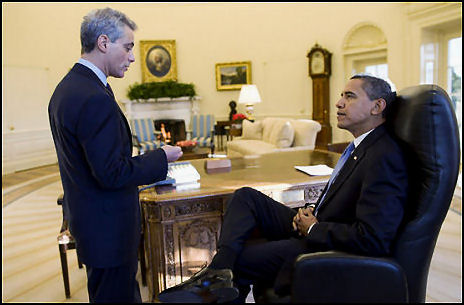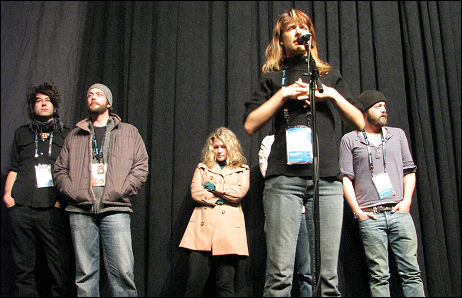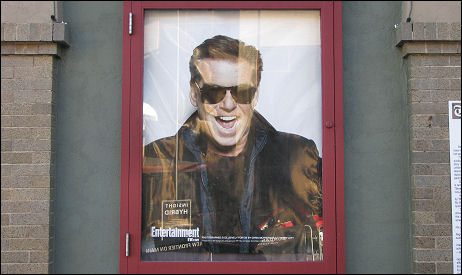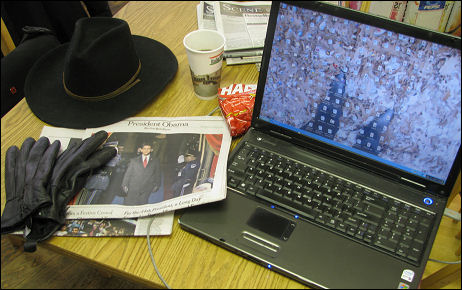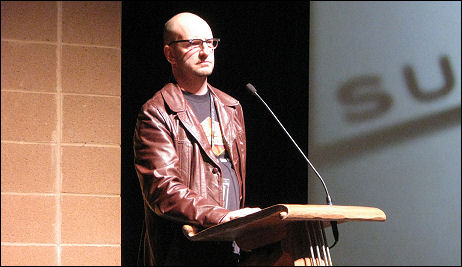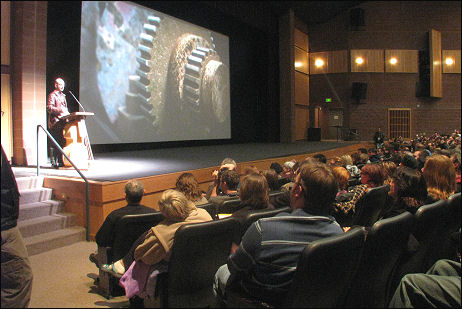No Best Picture nomination for The Dark Knight or WALL*E, but 13 nominations for The Curious Case of Benjamin Button? Okay, fine, what’s done is done…but in this respect the Oscar nominations are feeling a bit tepid to me.
Whoa, wait a minute, whoa…Brad Pitt has been nominated for Best Actor for playing a passive sponge man with two and a half expressions? This is a performance abour makeup and CG. Button is very worthy film in some respects, but this is comic relief. This is ridiculous. Nobody in the movie-savvy world has even flirted with medium-level (much less high) praise for Pitt’s performance in this film.
The Best Picture nominations went to Benjamin Button, Frost/Nixon, Milk, The Reader and the all but certain winner, Slumdog Millionaire.
I’m just going to post the nominations plain and straight and then run commentary in a subsequent post. My shuttle taking me to Salt Lake City arrives at 8:10 am — less than an hour from now! — so let’s just do this.
Best Actor: Frank Langella, Frost/Nixon, Sean Penn, Milk; Brad Pitt, The Curious Case of Benjamin Button; Mickey Rourke, The Wrestler; Richard Jenkins, The Visitor.
Best Actress: Anne Hathaway, Rachel Getting Married, Angelina Jolie, Changeling, Melissa Leo, Frozen River, Meryl Streep, Doubt, Kate Winslet, The Reader (but also for Revolutionary Road).
Best Supporting Actor: Josh Brolin, Milk; Robert Downey Jr., Tropic Thunder; Philip Seymour Hoffman, Doubt; Heath Ledger, The Dark Knight; Michael Shannon, Revolutionary Road.
Best Supporting Actress: Amy Adams, Doubt; Penelope Cruz, Vicky Cristina Barcelona; Viola Davis, Doubt; Taraji P. Henson, The Curious Case of Benjamin Button; and Marisa Tomei, The Wrestler.
Best Director: Danny Boyle, Slumdog Millionaire; Stephen Daldry, The Reader; David Fincher, The Curious Case of Benjamin Button; Ron Howard, Frost/Nixon; Gus Van Sant, Milk.
Best Foreign Language Film: The Baader-Meinhof Complex (Germany); The Class (France); Departures (Japan); Revanche” (Austria); Three Monkeys (Turkey); and Waltz with Bashir (Israel).
Here are the rest of the nominations. I have some commentary to post and a shuttle to catch in 20 minutes.


